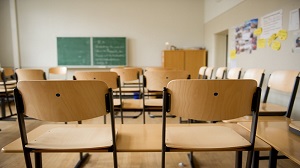The elections were held in South Africa where the majority of voters were black South Africans who were denied the right to vote by the apartheid regime.
Voters were mainly voting for better lives, freedom, a better economy, new government and better education, this as per the promises from political parties during their election campaigns.
Thirty years on, some South Africans are yet to see better education for their children.
Most learners in the rural areas are still struggling to reach their schools due to bad roads, some have to cross dangerous rivers to get to their schools and when they get to school, they are faced with horrendous conditions like the bucket system.
The good side is that most of the schools are now recipients of the government food program which assist learners with a two-course meal per day.
The higher education is also yet to see the fruits of 30-year democracy with only one university added. The number of grade 12 learners is growing every year and the current number of universities is too low to handle such capacity.
The government managed to launch a program that assist financially needy students to reach their academic goals.
The National Student Financial Aid Scheme aims to assist students with tuition fees, meals and accommodation. Unfortunately, it covers learners whose parents are at a certain salary bracket.
To unpack more on the state of education in SA, Channel Africa spoke to Dr Levy Ndou, a political analyst and a political science Lecturer at South Africa’s Tshwane University of Technology.
When asked about his views on SA’s education 30 years on Ndou said, “Higher education has improved especially with a high number of graduates who emerge from universities.
“Regarding the challenges that the country is facing he says a lot still need to be done in terms of sharing of resources.
“The political landscape has shown signs of tremendous growth and responsiveness, education has become the main focus of the ruling that has been in power for 30 years, challenges will always be there especially when it comes to rural and urban school. Most of urban schools are likely to receive extra funding as compared to rural ones.
“ Migration from rural to urban areas also play a major role where majority of rural parents prefer urban schools which leaves most school building abundant. A system need to be put in place to better education and infrastructure in rural schools, this will give parents in the rural areas an opportunity to remain and allow their children to learn nearby.”
Ndou continues: “SA level of education as compared to other African countries in the countries is competitive, especially with the number of students studying in the country. SA has more to offer to the continent especially at higher education level where number of universities in the country are more than that of other countries in the continent, it has shown that SA is a preferred country of study by most student within the continent.” Ndou hopes to see the coming government invest more in education.
--ChannelAfrica/Moffat Mokoena--













